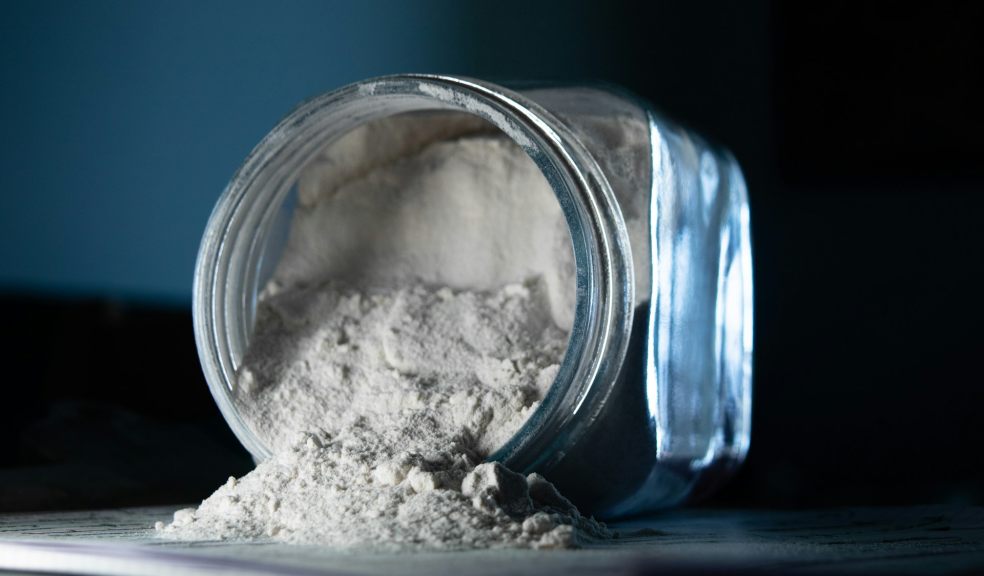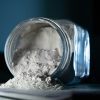
The Growing Popularity of NMN Supplementation in the UK and Ireland
NMN has gained huge popularity and growth in recent years capturing the attention of biohackers, scientists, and health-conscious individuals alike. Nicotinamide Mononucleotide supplements have grown in popularity due to their potential to improve energy levels, support healthy aging, and overall health. Here we are going to explore what NMN supplement is, the benefits, and why it is growing in popularity amongst so many different industries.
What is NMN?
Nicotinamide Mononucleotide (NMN) is a naturally occurring compound in the body that plays a key role in producing NAD+ (Nicotinamide Adenine Dinucleotide)—a vital coenzyme needed for energy metabolism, DNA repair, and overall cellular function. As we age, NAD+ levels naturally decline, leading to reduced energy, slower repair processes, and other common signs of ageing. Supplementing with NMN may help replenish NAD+ levels, supporting cellular health, vitality, and healthy ageing.
What Are the Benefits of NMN?
NMN (Nicotinamide Mononucleotide) has been linked to several potential health benefits, such as:
- Boosted Energy Metabolism:
By raising NAD+ levels, NMN supports mitochondrial function, which enhances the body’s energy production.
- Cognitive Support:
Research indicates NMN may improve brain performance and help slow age-related cognitive decline.
- Cardiovascular Health:
Studies suggest NMN can promote better blood flow and support overall heart health.
- DNA Repair & Longevity:
NMN activates sirtuins—proteins crucial for DNA repair and cellular longevity.
- Weight Management with Age:
NMN may reduce age-related weight gain by improving insulin sensitivity and increasing metabolic efficiency.
- Proven Safety:
Clinical trials show NMN does not negatively affect blood pressure, highlighting its safety for human use.
The surge of interest in NMN (nicotinamide mononucleotide) supplementation in the UK and Ireland reflects the meeting point of longevity culture, biohacking trends, and shifting food-supplement regulation. NMN acts as a precursor to NAD⁺, a coenzyme vital for cellular energy and DNA repair that naturally declines with age. The idea is straightforward: boosting NAD⁺ through NMN powder may support healthier aging. This promise—amplified by media coverage on “longevity” and the mainstream acceptance of supplements such as vitamin D, creatine, and omega-3—has fueled NMN’s popularity across Britain and Ireland. Yet consumers are also learning that hype and scientific evidence don’t always align, and that regulatory frameworks for NMN remain in flux.
On the demand side, several drivers stand out. First, longevity has gone mainstream. High-profile podcasts, wellness newsletters, and personal experimentation have popularised NAD⁺-related products—from IV drips to oral supplements such as NR (nicotinamide riboside) and NMN—and moved them beyond niche biohacker circles. Lifestyle media now regularly covers NAD⁺ interventions, even while acknowledging uncertainties about clinical efficacy. That mix of hype and caution keeps public interest high and fuels trial among early adopters.
Second, the research pipeline—though still small and heterogeneous—has given consumers just enough to be curious. Human studies since roughly 2020 suggest NMN is generally well-tolerated across doses from about 100 mg to 1,250 mg per day over several weeks, with signals in areas like NAD⁺ metabolism and vascular stiffness in specific populations. Importantly, durations are short (often 3–12 weeks), sample sizes modest, and endpoints vary, so “proof” of broad anti-aging effects in healthy people remains limited. Nevertheless, safety signals to date are relatively reassuring, which lowers the psychological barrier to self-experimentation.
Third, cross-border e-commerce makes it trivial to buy NMN. UK and Irish consumers routinely encounter overseas brands via ads and influencers. Even when local retailers hesitate, international platforms ship directly to doorsteps, sometimes marketing NMN as a “research compound” or bundling it into multi-ingredient “longevity” blends. That easy availability helps sustain interest regardless of local regulatory clarity.
And regulation is where things get complicated. In Great Britain (England, Scotland, Wales), NMN is considered a “novel food,” meaning it requires authorisation before it can be lawfully marketed as a food supplement. The Food Standards Agency (FSA) maintains the regulatory pathway for novel foods, and, as of now, NMN has not been authorised for sale as a supplement in GB. Without an authorisation, products containing NMN cannot legally be placed on the GB market as foods or food supplements, even if consumers can still find them online from abroad.
In the EU—relevant to Ireland—novel foods also require authorisation following EFSA’s safety assessment. EFSA explains the general process and maintains a tracker for specific dossiers; multiple NMN applications have been lodged and are progressing through risk assessment, but authorisations are not yet in place. Member-state authorities have flagged NMN-containing products as unauthorised in the meantime; for example, a 24 December 2024 RASFF notification concerned products with the unauthorised novel ingredient NMN. Practically, this means that, in Ireland, products marketed as food supplements with NMN are not permitted unless and until NMN is added to the EU’s Union List with conditions of use.
This regulatory limbo shapes how the UK and Irish markets look on the ground. Mainstream pharmacy chains and reputable health-store groups largely avoid stocking NMN pending clear authorisations. Smaller online sellers and overseas vendors, however, serve demand via direct shipping, sometimes blurring categories (e.g., selling NMN as a “lab reagent”). That dynamic can confuse consumers: a substance that’s click-to-buy may still be non-compliant to market locally as a supplement. Both the FSA (GB) and the FSAI (Ireland) point businesses to the novel food's frameworks, which emphasise that authorisation is a prerequisite for lawful marketing.
Despite the regulatory caution, interest hasn’t cooled—if anything, it’s become more discerning. UK and Irish consumers who seek NMN today tend to ask sharper questions: Does the brand provide third-party testing? Is the form stable? What’s the stated purity? Are there certificates of analysis? They also compare NMN with alternatives like NR, which does have an EU authorisation (for nicotinamide riboside chloride under specific conditions), and with lifestyle interventions that raise or preserve NAD⁺ indirectly (sleep, exercise, caloric balance). That “compare and contrast” mindset reflects a maturing category rather than a fad.
Looking ahead, two forces will likely determine whether NMN moves from a grey market curiosity to a mainstream UK/Irish supplement according to engineeredmuscle.eu: regulatory clarity and higher-quality human data. If EFSA/Commission approvals land for specific NMN dossiers—with defined specifications, maximum daily intakes, and labelling—Irish retailers could participate legally and responsibly. Great Britain has its own post-Brexit novel-foods process; an FSA authorisation there would similarly unlock legitimate supply. Clear rules would crowd out non-compliant product and reward brands investing in quality and safety. On the science side, longer trials with clinically meaningful endpoints in target populations would help move the conversation from “promising” to “persuasive.” Until then, reputable sellers (where lawful) will lean on transparency and conservative claims, while informed consumers will keep expectations measured.
For individuals, the takeaway is pragmatic. If you’re in the UK or Ireland and considering NMN, first understand the legal status where you live and buy only from sources that comply with local law. Second, treat NMN like any supplement with emerging evidence: discuss it with your GP or pharmacist, especially if you’re pregnant, on medication, or managing a condition; start low, monitor how you feel, and don’t expect miracles. Third, prioritise the basics—sleep, exercise, nutrition, and stress management—which have stronger evidence for long-term health and may complement any NAD⁺-support strategy. The popularity of NMN shows how quickly advanced nutrition ideas spread today. Whether it ultimately earns a permanent spot on UK and Irish shelves will depend on regulators’ decisions and the quality of the next wave of clinical studies.




















